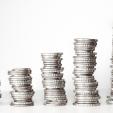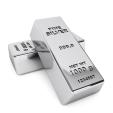Obama Dollar Rally Is Forecast to Join Clinton, Reagan Upturns
New York (Jan 2) The US dollar has an opportunity to make history. After three straight years of gains, strategists are forecasting the U.S. currency will be a world beater again in 2016, strengthening against seven of 10 developed-world peers by the end of the year, according to the median estimate in a Bloomberg survey. That outlook is backed by the Federal Reserve’s stated intent to continue raising interest rates while peers in the rest of the world keep them flat or lower.
The rally that started during President Barack Obama’s second term is poised to join a category defined by only the biggest, most durable periods of dollar strength since the currency’s peg to gold ended in 1971. Of the two other rallies that share that distinction, during the terms of Presidents Ronald Reagan and Bill Clinton, neither stopped at four years.
"This is the third big dollar rally we’ve had," said Marc Chandler, global head of currency strategy in New York at Brown Brothers Harriman & Co. "The Obama dollar rally, I think, is being fueled by the divergence in monetary policy."
The U.S. currency will end 2016 higher against its major counterparts except the Canadian dollar, British pound and the Norwegian krone, posting its biggest gains against the New Zealand and Australian dollars and the Swiss franc, according to forecasts compiled by Bloomberg.
That comes after three straight years of gains for the U.S. Trade Weighted Real Broad Dollar Index, a monthly weighted average of the dollar against the currencies of its main trading partners compiled by the Fed back to 1973, two years after President Richard Nixon made the greenback a freely floating currency by ending its convertibility to gold.
The only other two comparable dollar rallies were in the 1980s and the 1990s.
The currency had six straight years of gains from 1979 to 1984 as Reagan took office in 1981 and cut taxes while the Fed raised interest rates. Then, between 1996 and 2001, the greenback rose for five out of six years as the U.S. economy grew under Clinton.
"Dollar trends tend to last for years and years," said Greg Anderson, global head of foreign-exchange strategy in New York at Bank of Montreal. "You still have to respect the trend."
The current rally kicked off in 2013 when the Fed began winding down the extraordinary monetary stimulus it had in place since the 2007-2009 recession, stoking speculation higher interest rates would follow. That causes the currency to strengthen because it means investors would be paid more to keep money in dollars compared with others.
Last month, those higher rates finally came as the Fed bumped up borrowing costs a quarter of a percentage point for the first time in almost a decade, and released forecasts implying four similar increases next year as economic growth continues.
"No other country can keep up with that," Chandler said. "Therefore, the dollar is likely to appreciate against most of those currencies."
Source: Bloomberg













